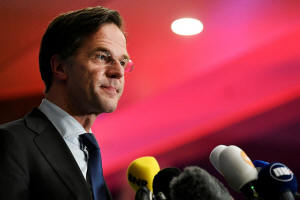|
The
new coalition has promised generous spending on sustainable
energy, housing, childcare and education, but will first have to
deal with the health crisis as the Omicron variant has pushed
coronavirus infections to record levels.
The government will need to decide by Friday if a broad lockdown
that has closed most public places since mid-December can be
eased despite the wave of new coronavirus cases.
Although the coalition consists of the same four parties that
have been in charge since 2017, it took almost 10 months to
bring them back together after the inconclusive election on
March 17, 2020, increased parties' reluctance to compromise.
The parties finally agreed on a government pact last month, in
which they left behind years of austerity with a raft of
spending plans fuelled by ultra low interest rates.
Those investments will need to win over a largely sceptical
public. Opinion polls have shown that, after a year of political
infighting and what are widely seen as wavering coronavirus
policies, confidence in Rutte as prime minister and in politics
as a whole has fallen to new lows.
In recent months, some anti-government demonstrations have ended
in violent riots and several ministers have reported receiving
death threats.
Last week, a man carrying a burning torch was arrested at the
house of Sigrid Kaag, the incoming finance minister.
Rutte, who was appointed prime minister in 2010, and Hungary's
Viktor Orban are the longest-serving government leaders in the
European Union. Rutte is on course to become the longest-serving
prime minister in Dutch history by August.
(Reporting by Bart Meijer, Editing by Timothy Heritage)
[© 2022 Thomson Reuters. All rights
reserved.]
This material may not be published,
broadcast, rewritten or redistributed.
Thompson Reuters is solely responsible for this content.

|
|




